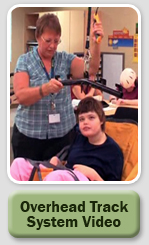- Kalamazoo Regional Educational Service Agency
- Information about Disabilities
-
Information about Disabilities
Autism
Autism is a complex developmental disability that typically appears during the first two years of life and is the result of a neurological disorder that affects the functioning of the brain, impacting development in the areas of social interaction and communication skills. Both children and adults on the autism spectrum typically show difficulties in verbal and non-verbal communication, social interactions, and leisure or play activities.Autism is one of five disorders that fall under the umbrella of Pervasive Developmental Disorders (PDD), a category of neurological disorders characterized by “severe and pervasive impairment in several areas of development.”Down Syndrome
Down syndrome is a chromosomal disorder that includes a combination of birth defects. Affected individuals have some degree of intellectual disability, characteristic facial features and, often, heart defects and other health problems. The severity of these problems varies greatly among affected individuals.Down syndrome is one of the most common genetic birth defects. It affects about 1 in 800 (about 3,400) babies a year in the United States (1). According to the National Down Syndrome Society, there are more than 400,000 individuals with Down syndrome in the United States (2).
Learn more about Down Syndrome >>Angelman Syndrome
Angelman syndrome is a genetic disorder that causes developmental delay and neurological problems. The physician Harry Angelman first delineated the syndrome in 1965, when he described several children in his practice as having "flat heads, jerky movements, protruding tongues, and bouts of laughter." Infants with Angelman syndrome appear normal at birth, but often have feeding problems in the first months of life and exhibit noticeable developmental delays by 6 to 12 months. Seizures often begin between 2 and 3 years of age. Speech impairment is pronounced, with little to no use of words. Individuals with this syndrome often display hyperactivity, small head size, sleep disorders, and movement and balance disorders that can cause severe functional deficits. Angelman syndrome results from the absence of a functional copy of the UBE3A gene inherited from the mother.Cognitively Impaired
Cognitive impairment is not an illness, but a description of someone’s condition. It means they have more trouble with things like memory, reasoning or paying attention than people their own age. They may have trouble speaking or understanding and they might have difficulty recognizing people, places or things. They might find new places or situations overwhelming. Family and friends might notice that someone with cognitive impairment is confused or agitated, or very moody. They might notice a change in their speech or behavior, or that they have difficulty with their usual daily tasks. Infants may be delayed in sitting, crawling and walking.




